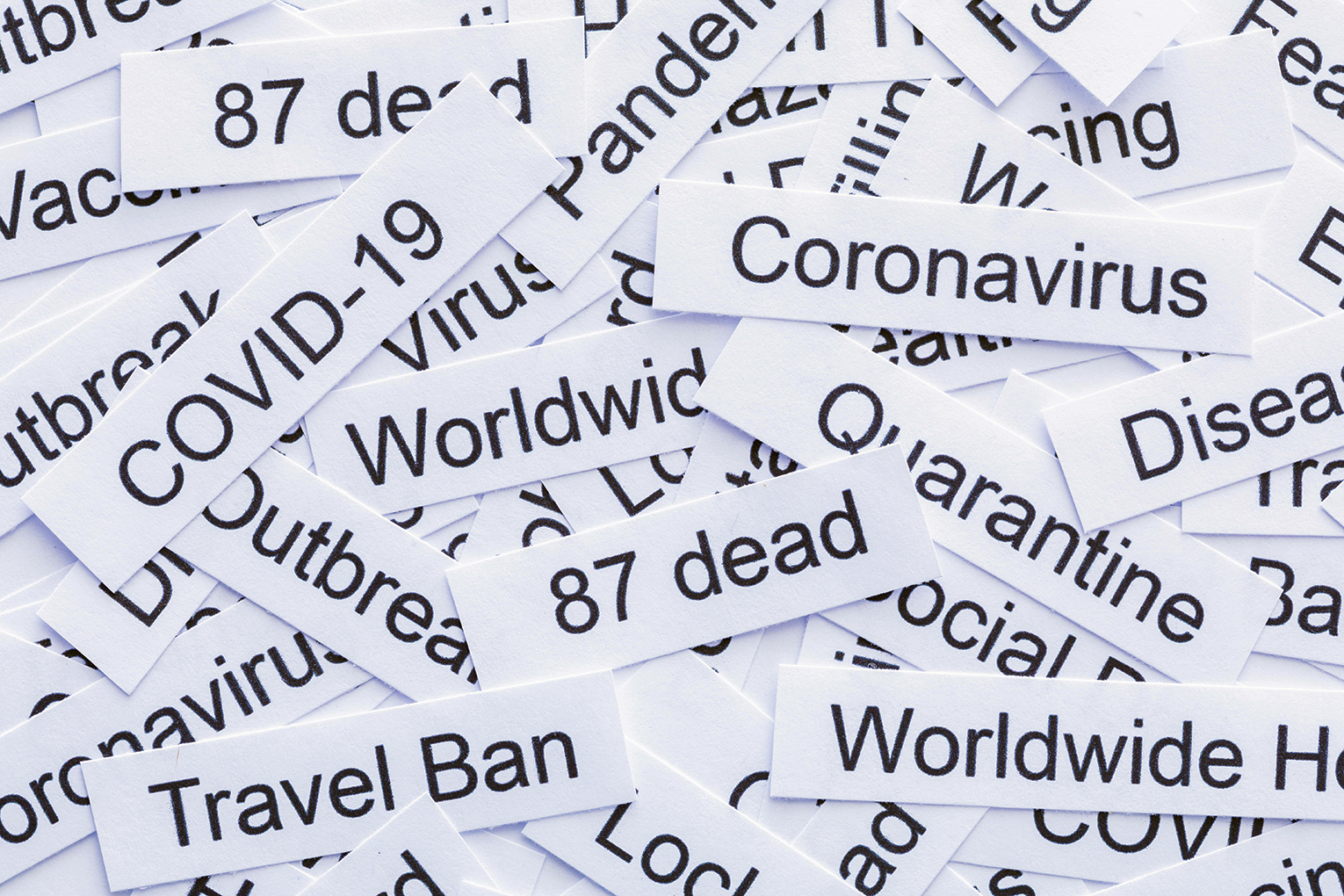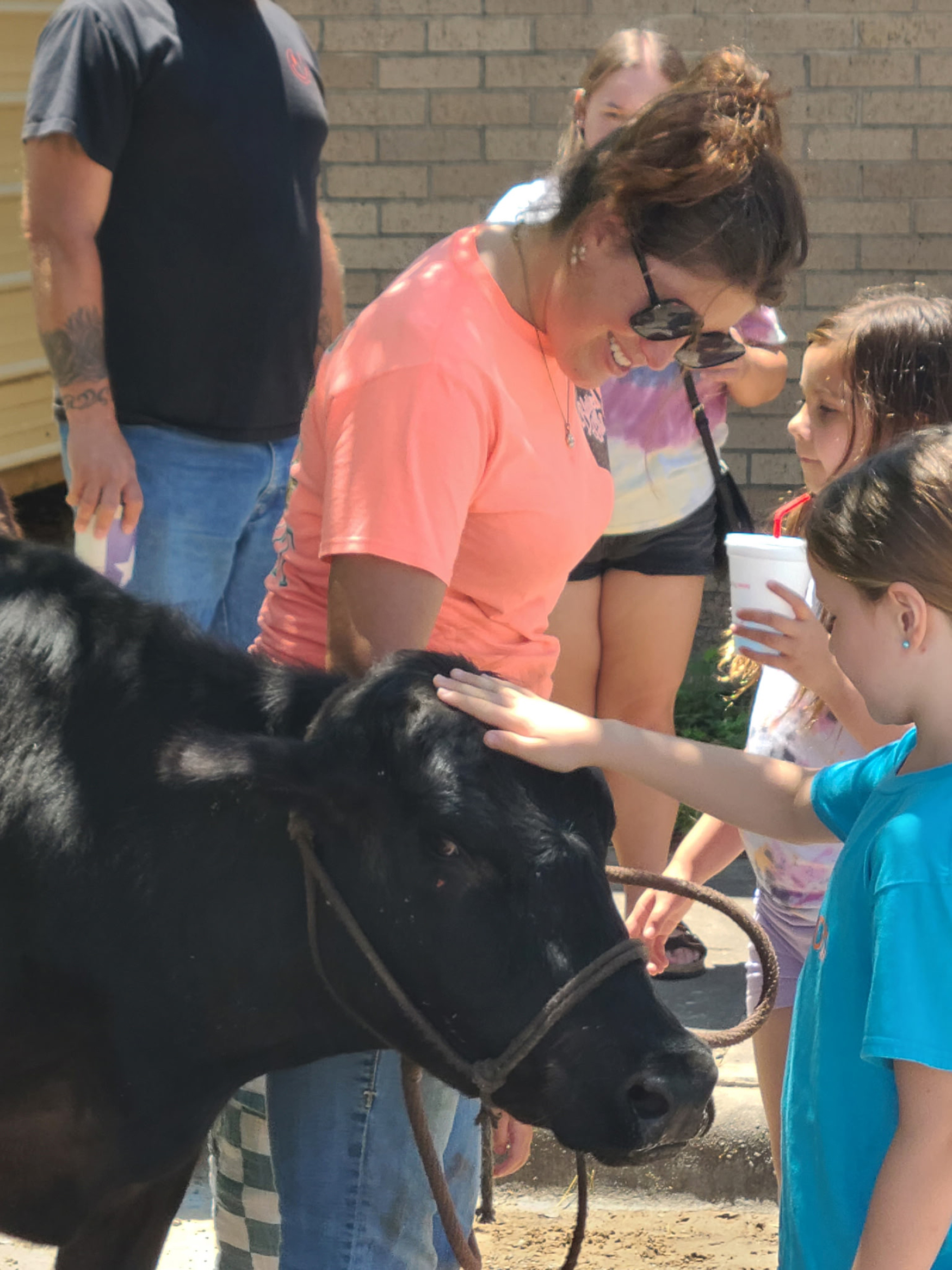COUNTY LIFE
Amid COVID-19 surge, focus on children’s mental health is crucial

By Christina Hoppe
The recent surge in COVID-19 cases—caused in part by the Omicron variant—has left many people wondering whether this pandemic will ever end. COVID-19 has upended how we work, go to school, visit our families, and receive health care. While so much of what we focus on in our daily lives revolves around case counts and hospitalization numbers, parents have also been left to grapple with their children’s mental health in this new and uncertain world. A November 2020 Centers for Disease Control and Prevention report showed that the proportion of mental health issues among all pediatric emergency room visits has increased and remained high. For children ages 5 to 11, visits rose 24% over the same months in 2019. The spike was 31% for teens ages 12 to 17.
Kids’ mental health issues were already rising in Texas, and the pandemic has only exacerbated these problems.
Before the COVID-19 pandemic, mental health challenges were the leading cause of disability and poor life outcomes in young people, with up to 1 in 5 children ages 3 to 17 in the U.S. having a mental, emotional, developmental, or behavioral disorder. During the pandemic, the volume and frequency of diagnoses such as anxiety and depression in children have continued to climb in Texas as they have across the country. Pediatric emergency department visits for mental health conditions have risen steadily, and the additional stress being inflicted upon families as a result of the pandemic is confounding.
There are many factors contributing to this increase in kids’ mental health conditions, including the difficulty of children adjusting to virtual learning, the lack of socialization with friends and the ability to participate in sports and activities, physical isolation, grief, and loss of primary and secondary caretakers. The U.S. Surgeon General, in a 2021 report, has called on the country to work together to step up for our children and emerge stronger on the other side of this pandemic.
It is critical for adults who care for children to watch for signs that those children are experiencing mental health issues.
Here are some tips for taking care of your child’s mental health during these stressful times:
- Talk openly about feelings. By keeping the channels of communication open, kids will feel reassured that they can come to you no matter what. Recognizing that their feelings have value will make it more likely that your children will continue talking about how they’re feeling throughout difficult times. Create opportunities for communication by spending time with your children in activities and play.
- Keep a routine. Kids thrive in routine, so when things – like COVID – upend their daily lives, it can add stress and uncertainty to the difficult feelings kids may already be navigating. Create routines for studying, physical activity, playing, snacks, meals and, most importantly, bedtime. And ensure that kids get enough sleep every night.
- Limit kids’ exposure to the news and social media. While we, as adults, often want to stay informed about crises like COVID, it is important to remember that constant information can be confusing and anxiety-inducing for kids. So, limiting kids’ exposure to news and social media is important.
- Make time for physical activity. Exercise and active play are some of the best things for children’s mental health. The American Academy of Pediatrics (AAP) recommends that children over six-years-old get at least 60 minutes of physical activity each day.
- Limit screen time. Children should spend no more than two hours a day on screen-time activities. For kids, anxiety, depression, and loneliness are often the result of too much screen time. A 2018 study showed that, after an hour of screen time per day, increasing screen time was generally linked to progressively lower psychological well-being. The study also found that high users of screens were significantly more likely to have been diagnosed with anxiety or depression.
- Watch out for signs of trouble. No two children are the same but looking out for signs of distress can help you know when to take action. Some such signs include difficulty controlling emotions; younger children’s regressing and throwing temper tantrums, exhibiting disruptive behaviors, and school avoidance; avoiding normal activities; withdrawing from relationships with friends and family; erratic behavior; or a continuous sad mood. Talk to your children’s primary care physician and/or the counselors at your child’s school as a first step.
At the Children’s Hospital Association of Texas (CHAT), we are committed to educating about the value of comprehensive children’s hospitals and the unique care they provide.
Kids are not just little adults—caring for them requires specialized skill and training. If you are struggling with your child’s mental health and need more immediate care, consider seeking treatment at a comprehensive children’s hospital or via telehealth if you do not live near a hospital. Learn more at chatexas.com.
Christina Hoppe is the senior public policy director for the Children’s Hospital Association of Texas.
COUNTY LIFE
Jim Bowie Parade entries now being sought

It’s time to start working on your entry for the 2025 Jim Bowie Days Parade.
The theme is “God Bless Texas.” The entry deadline is 5 p.m. on June 25. Entry forms are available at jimbowiedays.com.
There are four categories for the parade: Youth organization or sports team, civic organization or church, riding club and business.
Kids are encouraged to decorate their bicycles and ride in the parade, and those with antique cars, trucks or tractors should give them a shine. For cowgirls and cowboys bring your horses to town and ride them on the route.
Prizes will be awarded for outstanding entries.
Coming in the June 19 Bowie News see the full calendar of events program for Jim Bowie Days and plan all your family’s activities during this western week of fun.
COUNTY LIFE
Free Music in the Park Festival arrives Saturday

The Music in the Park Festival organizers welcome guests to enjoy a day under the beautiful oaks of Pelham Park to hear an array of music on June 14 in Bowie.
This free music festival is hosted by the Bowie Community center and R&K Sound Company.
Guests are invited to bring their lawn chairs and set up under the oak trees that fill the park near the amphitheater. This is the second year for this free festival as it expands to a full day.
Live acoustic music opens the free festival starting at 11:30 a.m. with Corben Wolsey, Blake Mangus, Tiffany Chandler, Sara White and Dillon Edwards. Other live music that day will include Bad Daddy Band and Bricktown Band. ZZ Texas, a ZZ Top tribute band, will take the stage at 8 p.m. Live music continues until 10 p.m.
There will be food truck vendors, bounce houses (fee), axe throwing and vendors. Guests are allowed to bring beer in a cooler, but no soda pop or similar drinks. There will be a $5 cooler fee.
Prior to the musical events there will be a 5K run/walk at 8:30 a.m. at the Pelham Park Pavilion. Pre-race warm-up begins at 8:10 a.m. and the race starts at 8:30 a.m. There will be first-third place winners in each age category.
Entry fee is $35 and participants receive a T-shirt. A portion of the proceeds will benefit the Clear Choice Pregnancy Resource Center.
Those with questions may call Bonnie at 940-872-4861 or Kenny at 817-704-9847. In case of rain the event will be moved into the center.
COUNTY LIFE
Nocona Library welcomes youngsters for summer fun

Nocona Public Library is celebrating summer with lots of activities for kids.
On June 6 the Friends of the Library hosted a Rhyme Time story time. Marcia Williams read “Nothing Rhymes with Orange” by Adam Rex to the children. Lory Hunt helped the kids burn off some energy with a hopping rhyming activity.
Friends of the Library will be hosting its annual summer reading program in July. Check the Library Facebook page for details. Children can pick up reading logs at the library and start reading now.
The Library Advisory Board is having a new program this summer for children in grades 1-5. The Great Summer Adventure is at noon on Mondays in June and July.
Each adventure day begins with a story read by Lory Hunt and is always followed by a surprise. On June 9 the kids were surprised with Taylor Watson’s Petting Zoo. A blind cow named Helen, Pearl the white pony and a white goat named Bell all visited the library. The children had lots of fun petting the animals. Parents can sign children up for this program at the library.
Nocona Public Library is open Monday thru Friday 9 a.m. to 5 p.m.
(top photo) The Taylor Watson Petting Zoo was a big hit at last week’s summer reading program at Nocona Public Library. (Courtesy photo)
-

 NEWS3 years ago
NEWS3 years ago2 hurt, 1 jailed after shooting incident north of Nocona
-

 NEWS2 years ago
NEWS2 years agoSuspect indicted, jailed in Tia Hutson murder
-

 NEWS2 years ago
NEWS2 years agoSO investigating possible murder/suicide
-

 NEWS2 years ago
NEWS2 years agoWreck takes the life of BHS teen, 16
-

 NEWS2 years ago
NEWS2 years agoMurder unsolved – 1 year later Tia Hutson’s family angry, frustrated with no arrest
-

 NEWS2 years ago
NEWS2 years agoSheriff’s office called out to infant’s death
-

 NEWS2 years ago
NEWS2 years agoBowie Police face three-hour standoff after possible domestic fight
-

 NEWS3 years ago
NEWS3 years agoDriver stopped by a man running into the street, robbed at knifepoint






